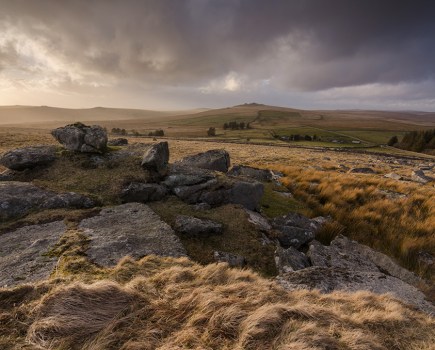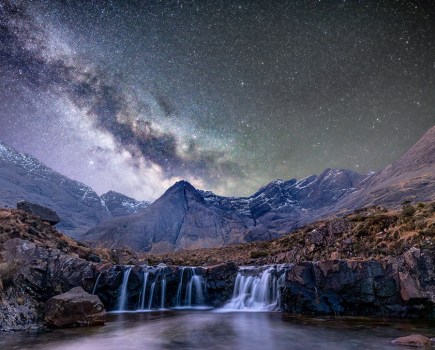The last statistic for Facebook photo uploads put them at 350 million per day.
And bear in mind that figure is almost a year old. The number is likely to have substantially increased since.
It’s not surprising then that the network’s photo banning policy can sometimes be a little hair-trigger.
With such a sheer volume of content constantly shooting through the network’s tubes, there simply isn’t time to have a human visually verify even a fraction of the photos before they get shown to the world.
AP recently came a cropper of this when we posted a photo from APOY Round 4 (above) on our own Facebook page only to find it swiftly taken down, cited as being in violation of the site’s ‘community standards’ with regard to nudity.
This move took a lot of people by surprise, not least the photographer herself.
It doesn’t help that Facebook’s terms can be somewhat oblique with regard to what is and isn’t acceptable – we won’t link to any of it, but it’s all too easy to find images that plainly show real blood, gore and death; that incite hatred; or that exhibit casual sexism and homophobia and play it as a joke.
Stuff like this isn’t always deemed to have ‘violated [Facebook’s] community policies‘, and yet Penny’s photograph, of her own daughter, did.
Yesterday, Facebook reversed the decision, claiming a mistake on the part of its community standards team. Whether this would have happened if AP and its readers hadn’t kicked up such a ruckus is questionable.
It got us thinking though: does this happen often? A little exploring made us realise we and Penny are far from the only people to fall foul of Facebook’s over-zealous ban-hammer…
1. Facebook bans pictures of a baby with a birth defect
When Heather Walker’s son Grayson was born with anencephaly, a rare birth defect that causes a baby to be missing parts of its brain and skull, she knew their time with their together would be all too brief.
Walker posted some photos of her son to Facebook shortly after he died, which the site subsequently removed. Attempts to repost the photos netted Walker a 24-hour block from uploading anything to Facebook.
The company subsequently apologised, with a similar statement as was given to Penny Halsall and AP, citing human error in the content inspection team.
2. Facebook bans a rowing team’s charity calendar
When Warwick University’s women’s rowing team sold 1,500 copies of their 2014 (tasteful) nude charity calendar, they raised a whopping £3400 for MacMillan Cancer Support.
However, when they released photos from their calendar, featuring no explicit nudity, on Facebook, they quickly found themselves in apparent violation of the site’s strict, no-compromise rules on ‘pornography’.
Attempts by the team to explain themselves proved fruitless, and several members expressed concern that the blanket ban could adversely affect how much money they raise with the 2015 calendar, already shot and slated for release later this year.
3. Facebook deems a photograph of a mixed-race gay couple ‘offensive’
After the Facebook Group Gay Marriage USA uploaded a photo of a mixed-race couple to its page, it probably didn’t anticipate the level of homophobic abuse it would receive.
The breaking point came, however, when group founder Murry Lipp received a notification that the photo had been removed because Facebook deemed it ‘offensive’.
It took The Guardian intervening for the photo to be reinstated. Facebook once again offered its standard apology that the photo had been removed ‘in error’.
This really epitomises the ‘hair-trigger’ problem we were talking about earlier. The fact is that if some bigots take it into their heads that a perfectly innocuous photo is somehow ‘offensive’, they’ll probably have little trouble getting Facebook to remove it, and the burden will be upon the original uploader to demonstrate that it isn’t offensive.
4. Facebook removes a documentary-maker’s self-portrait taken with her girlfriend
Documentary filmmaker Jodi Savitz posted a photograph of herself with her girlfriend accompanied by a message promoting her new film, and was overjoyed when she saw it attained a ‘reach’ (social media term relating to many people see a post through likes and shares) of more than 25-million people.
The joy was short-lived, however, as she found her image banned on grounds of violating Facebook’s standards of nudity/pornography, despite containing neither. Jodi was also threatened with a 24-hour ban for uploading the image.
5. Facebook removes images of women post-mastectomy
Last year, an image of a woman’s post-mastectomy tattoo from quickly started to go viral when it became apparent that Facebook was repeatedly removing it.
After the saga garnered some attention and a petition calling for Facebook to leave such images alone, the network released a statement clarifying its position on mastectomy images.
Once again, you find yourself wondering what – if anything – would have happened had no-one protested.
*
It’s unclear what the answer is. As we said, the sheer volume of content added to Facebook every single day makes human inspection impractical. Judging by some of the content that does make it through, and the ever-growing number of children signing up to the service, it’s clear that some content regulation is necessary.
All we know is that it’s a shame when beautiful photographs like Penny’s APOY entry, charitable endeavours like the University of Warwick’s calendar, or precious moments like Heather Walker’s short time with her son, are flung by the wayside for the sake of one bigot’s offended sensibilities, or chewed up by some quirk of an impassive algorithm.







